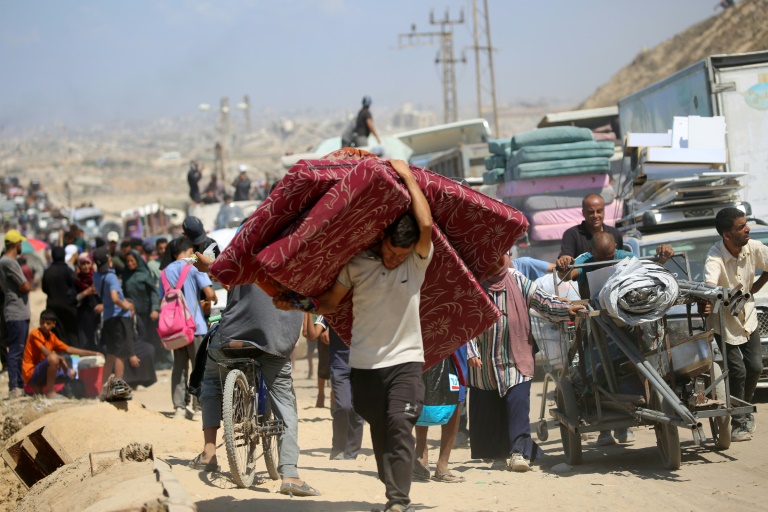
UPDATE: In a devastating escalation, at least 20 Palestinians were killed in airstrikes on Gaza City early Saturday, as the humanitarian crisis worsens. The assault, which has seen Israel intensify its military operations, has left many residents scrambling for safety and resources, with reports of casualties flooding into local hospitals.
The director of Al Shifa hospital, Mohammed Abu Salmiya, faced unimaginable grief as he treated victims of the bombardment. Just hours into his shift, he was forced to receive the bodies of his own brother and sister-in-law, a harrowing reminder of the toll this conflict is taking on countless families. “I was shocked and devastated,” he told AFP. “Anything is possible now, as you receive your dearest ones as martyrs or wounded.”
As Israel continues its offensive to capture what it describes as one of Hamas’s last strongholds, the situation for those remaining in Gaza City grows increasingly dire. An AFP journalist witnessed ambulances racing to the hospital, delivering more victims of the relentless strikes. According to the Gaza Civil Defence Agency, the recent escalation has forced over 450,000 Palestinians to flee the city, yet many remain trapped, unable to escape due to rising costs and deteriorating conditions.
Families are seen abandoning their homes, struggling with their possessions loaded onto trucks, cars, and even donkey carts. Residents like Mohammed Nassar, who is caring for three daughters, expressed their despair: “Death is more merciful. I will wait until the last moment.” He lamented the prohibitive costs of evacuation, which have skyrocketed to between $1,500 and $2,000 for the roughly 30-kilometre (19-mile) journey to safer areas.
The international community is watching closely as the United Nations has raised alarms over the humanitarian crisis, declaring a state of famine in the region. As Israel’s military aggressively pursues its objectives, the UN and foreign powers have urged a halt to operations, fearing further devastation to the city’s already fragile infrastructure.
The military has warned residents to head south to a designated “humanitarian area” in Al-Mawasi, claiming aid and medical resources would be made available. However, skepticism runs high among Palestinians, many of whom have witnessed repeated strikes in areas previously designated as safe.
“I want to evacuate but I have no money,” Raeda al-Amareen, a local resident, shared her plight. “We don’t even have 10 shekels to buy bread. What are we supposed to do? We’ll stay – either we die or someone finds a solution for us.”
As the situation in Gaza City continues to deteriorate, the urgency for international intervention and humanitarian assistance grows. With each passing hour, more lives hang in the balance. The world watches as the humanitarian crisis unfolds, with many calling for immediate action to protect civilians and provide essential aid.
What happens next remains uncertain, but the cries for help from the beleaguered residents of Gaza City resonate louder than ever. The international community must respond swiftly to prevent further loss of life in this ongoing tragedy.






